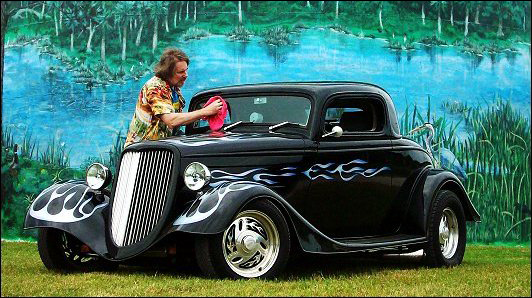
Should I Paint a Scratch on My Car? The Pros and Cons

Should I Paint a Scratch on My Car?
As hard as you try to take care of your car, scratches are seemingly inevitable. Falling tree branches, keys that miss their mark, and bumps from people or luggage can all leave unsightly dings and blemishes on your vehicle. But should you paint a scratch on your car? The Motor Bookstore weighs in below.
The Pros and Cons
The main arguments against painting scratches on a car are that A) it can potentially be expensive and time-consuming, and B) fixing scratches aren’t essential to a car’s performance. After all, if it doesn’t get you where you’re going and faster, then what does it matter? However, we ultimately come out in favor of painting scratches for a few big reasons.
To begin with, even minor scratches will hurt your car’s resale and trade-in value. You may not care about them, but dealerships certainly will. In addition, deep scratches that penetrate the base coat or primer are prime candidates to eventually develop into rust holes. Lastly, many automotive experts agree that scratches can adversely affect your own view of the car – and if you think less of your vehicle, you may be less likely to do important regular maintenance such as oil changes, tire rotations and tune-ups.
Ways to fix scratches
Contrary to popular perception, many minor scratches can be fixed inexpensively in your own garage. Clear coat scratches can often be buffed out in minutes using regular automotive polishing compound, which spreads out the remaining clear coat over the affected area. (Be careful not to overdo it, or you may need to respray some clear coat back on.)
Base coat and primer scratches can take longer to fix, but are far more important to deal with. Many car dealers have touch-up paint or paint pens available for about $10 that do a passable job – just make sure to get the paint code off your vehicle’s compliance plate. You can also do a more professional overnight job using cleaning solvents, matching paint and primer, medium-grade wet sandpaper and polishing compound.
Thinking about doing more work to your vehicle? Check out our other blogs on engine rebuilds and recharging your A/C system.

 Shop Store
Shop Store











